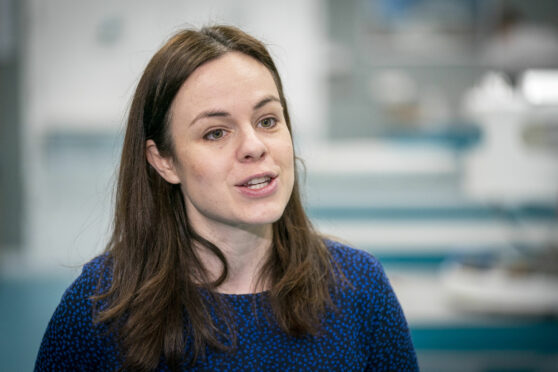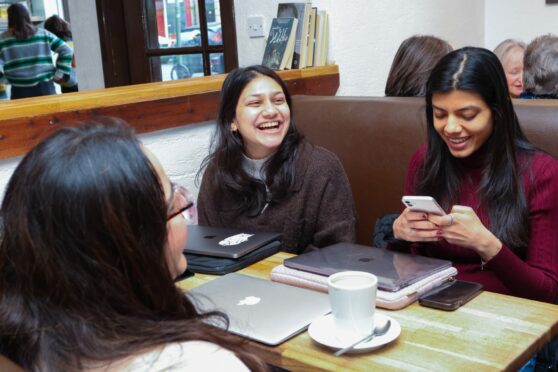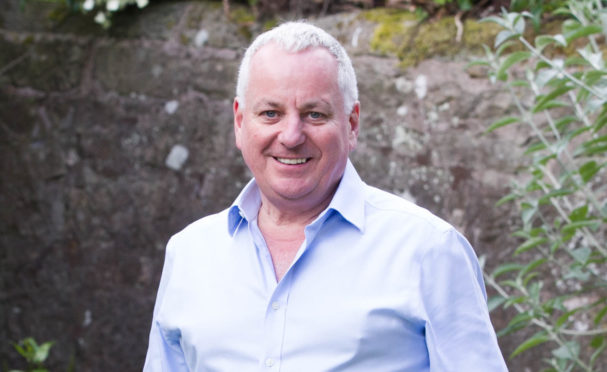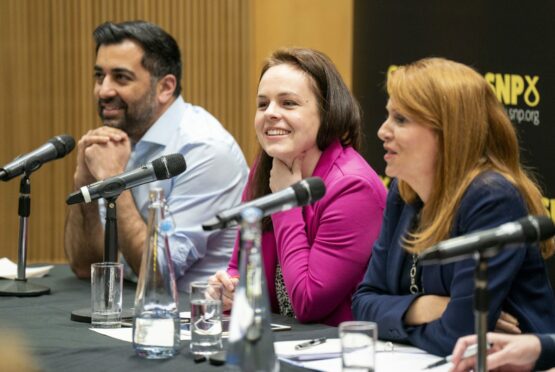
Poor Kate Forbes. One minute she was cocooned in the bubble of new parenthood, blissfully unaware of Nicola Sturgeon’s resignation and her own impending bid to replace her, the next she was being roundly – and rightly – criticised for stating her belief that marriage should be the preserve of heterosexual couples and that she’d have voted against same-sex marriage had she been an MSP in 2014.
Isn’t it such a shame when bigoted beliefs are called out for what they are?
Forbes suggests the largely horrified reaction to her comments constitutes an attack on her faith. Nonsense. Critics are alarmed by the implicit homophobia, not her religion, and the two do not go hand in hand as the deputy first minister John Swinney, a man who describes himself as being of “deep religious faith”, rushed to point out.
More confoundingly, Forbes also suggested the backlash she faced after her incendiary campaign launch is illustrative of Scotland becoming an illiberal country. The academic Adam Tomkins – currently writing a book on free speech – agrees.
“Kate is right: her campaign is shining a very bright light on just how illiberal modern Scotland has become,” said the Tory MP.
“We are not a plural nation. We do not welcome a diversity of views. We prefer groupthink.”
Well, I don’t. I welcome a diversity of views.
SNP leadership candidates Kate Forbes, Ash Regan and Humza Yousaf to face TV debate
But I’m not interested in giving oxygen to the opinion of anyone who would seek to discriminate against others because of their sexual orientation or, for that matter, any other characteristics outwith their control. Does that make me illiberal, or simply someone who cares about the protection of basic human rights?
These complaints of illiberalism, of social silencing, remind me of all the comedians who begrudge having to remove racist or misogynistic jokes from their stand-up routines for fear of being cancelled despite there being very few examples of comedians losing their careers following problematic remarks or behaviour.
The “you can’t say anything these days” mob is very often more vocal in its denigration of woke culture than the so-called social justice warriors they claim to be cowed by. They have created a moral panic around tolerance, framing those who value it as, well, intolerant. Go figure.
Nobody is stopping Kate Forbes from exercising her right to freedom of expression. Nobody should. She has very comfortably and publicly spoken about why she believes same-sex couples do not deserve the same privileges as straight ones, how trans women are actually men and that having children outside of marriage is “wrong”.
She has been clear and unapologetic; I have looked more sheepish when admitting to cat owners that I prefer dogs.
She has insisted throughout that she has no interest in imposing her religious beliefs on others but this isn’t strictly true. If she would have voted against gay marriage because her faith opposes it, she can’t really claim an ability to separate the personal from the political or a desire to place her constituents’ concerns above her own.
She has the right to believe whatever she likes. I also have a right to say those beliefs make her unsuitable as first minister because she doesn’t believe in equality.
As a nation that strives to be progressive, it is our prerogative to question the intentions of a prospective leader whose personal views are anything but.
You can call that “groupthink” if you want. I prefer to see it as a sign of an evolved society; one that has already exhausted debates about sexuality and abortion in decades gone by and is concerned about what the future might look like in the hands of a politician whose feet are planted firmly in the past.

Enjoy the convenience of having The Sunday Post delivered as a digital ePaper straight to your smartphone, tablet or computer.
Subscribe for only £5.49 a month and enjoy all the benefits of the printed paper as a digital replica.
Subscribe

